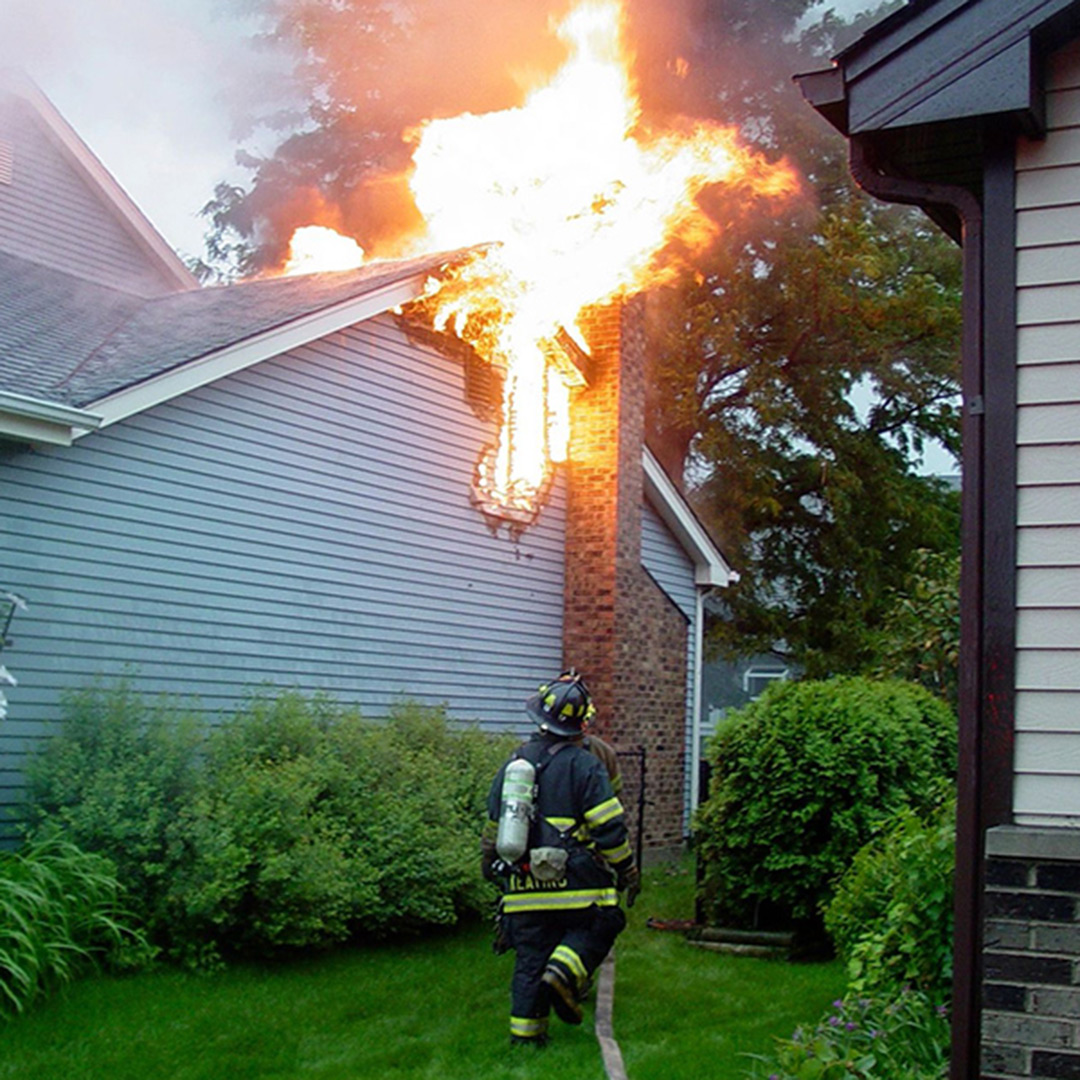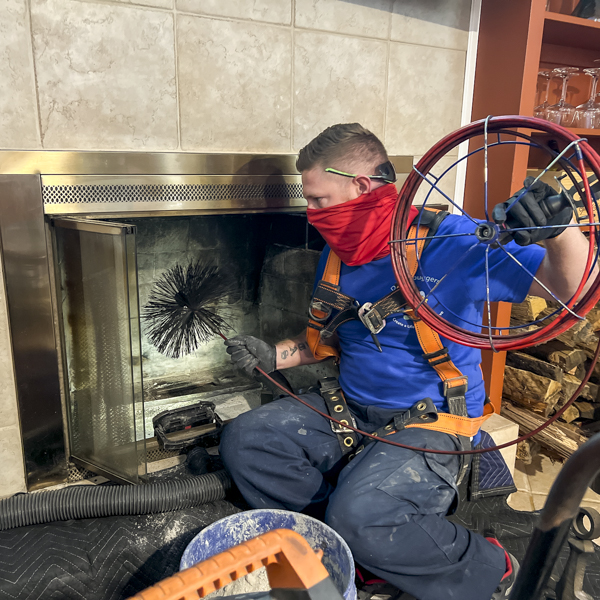- PENSACOLA SHOWROOM: 7555 Highway 98 West, Suite A, Pensacola, FL 32506
- DESTIN SHOWROOM: 36054 Emerald Coast Pkwy #100, Destin, FL 32541
One of the most important topics that new chimney sweeps study is chimney fires: what causes them, how to prevent them, and the damage they do. Chimney fires can happen in any chimney fed by a wood-burning fireplace.
Doodlebuggers Fireplace, Grill & Outdoor Store of Pensacola, FL, and Destin, FL, would like to share some helpful points about chimney fires. You won’t be ready to go to work as a chimney sweep after reading, but you just may prevent a devastating situation in your home.
 Facts about chimney fires
Facts about chimney firesIf you use a wood fireplace, you can’t completely stop creosote production, but you can take some steps to dramatically reduce the chance of a chimney fire. Here are three steps.
Dry, seasoned wood has a much lower moisture content than wood that’s freshly cut. Moisture causes a lot of smoke, and smoke is how creosote starts.
Creosote can present as a sticky, flaky, puffy, or solid substance. Because all stages of creosote are caused by smoke, you want to keep smoke to a minimum by using only dry firewood.
Drafting a fireplace is a two-sided job: one side is in the flue, and the other is in your home.
Fire needs air to burn. If your flue is full of creosote, tree debris, small animal nests and animals that have died in your chimney, the firebox won’t receive sufficient air to burn logs efficiently. Inefficient burning causes excess smoke.
If your home is extremely airtight, your chimney may have trouble creating a good draft to draw smoke through the firebox and make logs burn robustly. Sometimes, cracking a nearby window will solve this problem.

Professional chimney sweeps use specialized tools and equipment to remove even the most stubborn creosote from chimney flues. All fire safety agencies in the U.S. recommend annual chimney cleaning.
Along with removing creosote, a chimney sweep will also remove the debris mentioned above. A thorough, annual chimney cleaning reduces the chance of a chimney fire and ensures that your flue is open to create an efficient draft.
Watch for these common signs:
If you notice any of these signs, call 911 immediately and remove people and pets from your home. Do not attempt to put out a chimney fire on your own!
After the situation is resolved, schedule a chimney inspection before using your chimney again.
If it’s been more than a year since your chimney was cleaned and serviced, now is the time to schedule this important work. Doodlebuggers provides expert chimney sweeping, chimney inspections, and chimney repair services. We know how to keep your chimney safe.
Reach a chimney expert today at (850) 477-1151 in Pensacola, FL, or at (850) 243-0154 in the Destin, FL, area. You can also get in touch with our handy contact form.